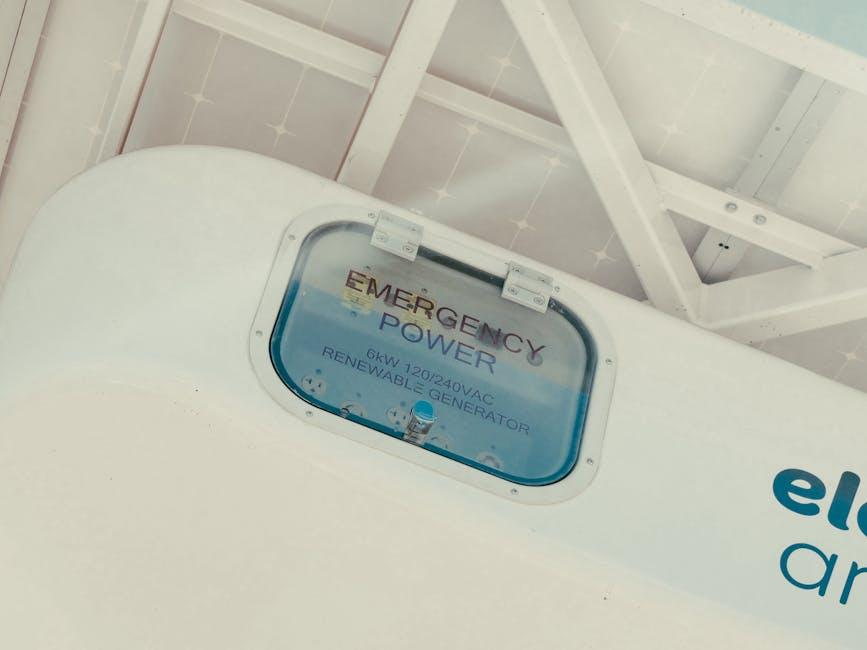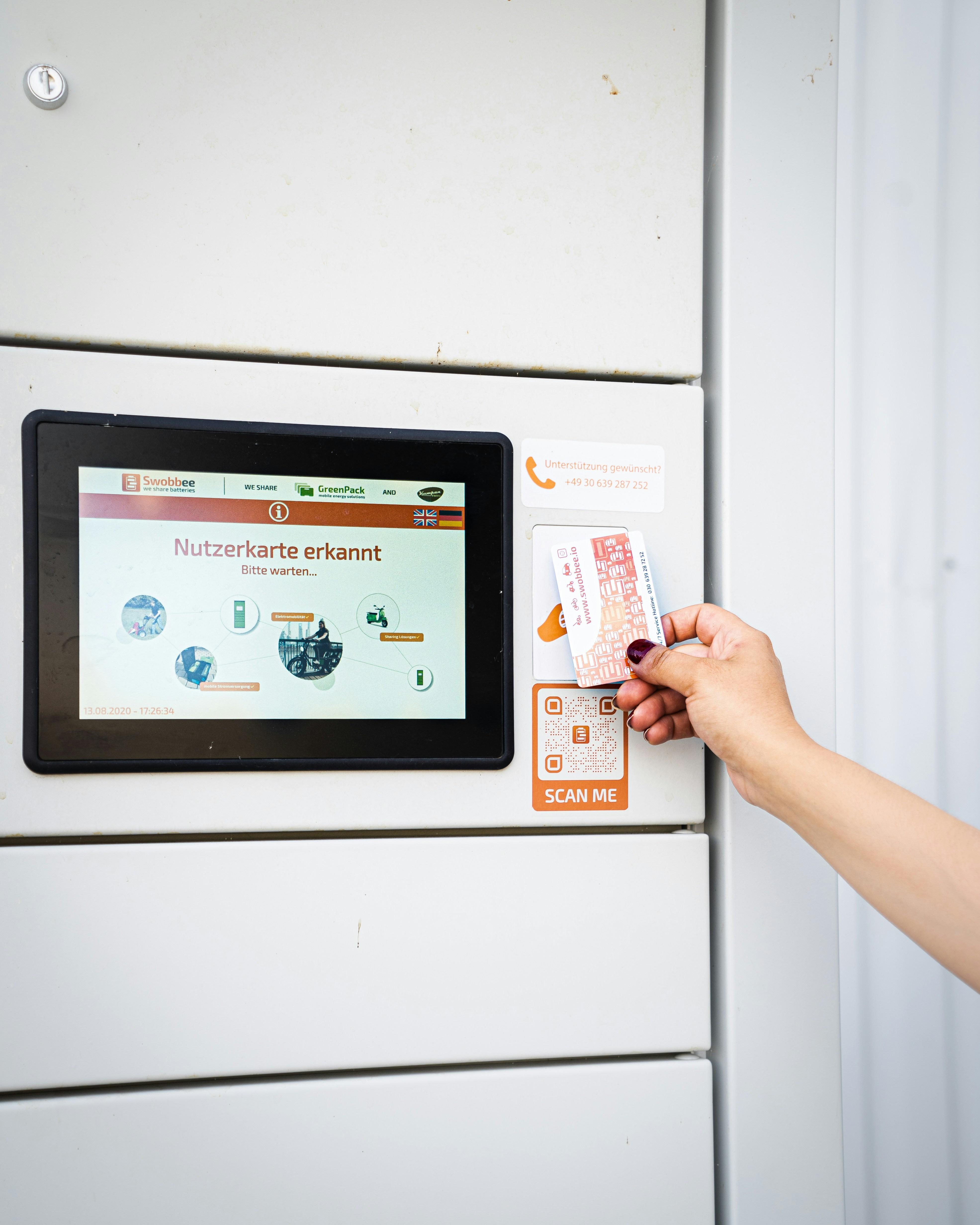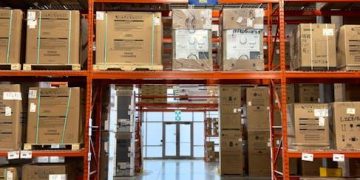In the shimmering dawn of the renewable energy revolution, solar batteries emerge as the silent custodians of sustainability, promising to capture the sun’s bounty and illuminate the world long after twilight. Yet, beneath their sleek exteriors and eco-friendly allure lies a complex narrative of ethics, production, and responsibility. As the global demand for solar energy storage surges, a crucial question arises: are solar battery manufacturers truly upholding the ethical standards expected in this era of conscious consumerism? This article delves into the intricate world of solar battery production, exploring the ethical landscape that underpins this burgeoning industry. From sourcing raw materials to ensuring fair labor practices, we navigate the labyrinth of challenges and innovations that define the quest for truly sustainable energy solutions. Join us as we uncover the realities of this vital sector, where the promise of a greener future meets the imperatives of ethical stewardship.
Examining Labor Practices in Solar Battery Production
In the quest for sustainable energy solutions, the production of solar batteries has taken center stage. However, the spotlight is now also on the labor practices behind this industry. Are workers’ rights and safety prioritized in the factories that manufacture these crucial components? Concerns have been raised about the ethical standards being upheld in this sector, with some manufacturers coming under scrutiny for their labor practices. This calls for a deeper look into the following aspects:
- Fair Wages: Are employees compensated fairly in comparison to industry standards?
- Working Conditions: Do the facilities provide a safe and healthy environment?
- Child Labor: Is there a strict policy against the employment of underage workers?
- Worker Rights: Are employees free to unionize and advocate for better conditions?
While some companies are making strides towards ethical transparency, it remains essential for industry watchdogs and consumers to hold manufacturers accountable. By fostering an environment where ethical labor practices are the norm, the solar battery industry can truly align itself with the values of sustainability and social responsibility.

The Environmental Impact of Battery Manufacturing
In the quest for renewable energy, the role of solar batteries is undeniably pivotal. However, their production process raises significant concerns regarding their ecological footprint. The extraction of raw materials such as lithium, cobalt, and nickel is resource-intensive, often leading to habitat destruction and water pollution. The mining activities not only disrupt ecosystems but also release harmful emissions, contributing to climate change.
- Resource Depletion: Mining depletes finite resources, impacting biodiversity.
- Water Usage: High water consumption in mining operations strains local supplies.
- Waste Generation: Production results in substantial waste, often improperly managed.
Furthermore, the energy consumed during the manufacturing process itself often relies on non-renewable sources, counteracting the green intentions behind solar technology. While some companies strive to adopt more sustainable practices, the industry as a whole faces challenges in balancing economic viability with environmental responsibility. As consumers become more aware, the demand for ethically produced solar batteries could drive innovation towards greener solutions.

Transparency and Accountability in the Supply Chain
In the intricate world of solar battery production, transparency and accountability stand as pillars of ethical integrity. As manufacturers navigate the complex web of sourcing raw materials, ethical considerations are increasingly scrutinized by both consumers and regulatory bodies. The journey from raw material extraction to the final product involves numerous stakeholders, each with a responsibility to uphold ethical standards. Yet, the question remains: are these standards being met consistently across the board?
Key areas of concern include:
- Material Sourcing: Ensuring that raw materials, such as lithium and cobalt, are sourced without exploiting local communities or degrading the environment.
- Labor Practices: Adhering to fair labor practices, ensuring that workers are not subject to unsafe conditions or unfair wages.
- Environmental Impact: Minimizing the ecological footprint of manufacturing processes, from energy consumption to waste management.
While many manufacturers claim adherence to ethical standards, the lack of consistent, transparent reporting mechanisms poses a challenge. As the industry evolves, robust frameworks for monitoring and verifying these claims are essential, ensuring that the transition to renewable energy is both sustainable and just.

Recommendations for Ethical Improvements in the Industry
- Transparent Supply Chains: Manufacturers should ensure that their supply chains are transparent, allowing consumers to trace the origin of raw materials. This can be achieved through blockchain technology or detailed documentation, offering insights into each step of the production process. Transparency fosters accountability and ensures that materials are sourced responsibly.
- Fair Labor Practices: The industry must prioritize fair labor practices by ensuring that all workers are treated with respect and paid fair wages. Collaborating with organizations that certify ethical labor practices can help manufacturers verify that their operations meet these standards.
- Environmental Stewardship: Adopting more sustainable production methods is crucial. Manufacturers should invest in technologies that reduce emissions and waste, and consider the entire lifecycle of their products, from production to disposal. Implementing recycling programs for used batteries can further minimize environmental impact.
- Community Engagement: Engaging with local communities where materials are sourced or facilities are located is essential. Manufacturers should seek to understand and address community concerns, contribute to local development, and ensure that their operations do not negatively impact local ecosystems or societies.
In Retrospect
In the grand tapestry of technological advancement, the narrative of solar battery manufacturers unfolds as a compelling tale of ambition, innovation, and ethical introspection. As we navigate this story, the question of whether these industry players are meeting ethical standards becomes a mirror reflecting the broader challenges of balancing progress with responsibility.
While strides have been made in reducing environmental footprints and enhancing transparency, the journey is far from complete. The evolving landscape of renewable energy demands not only technological prowess but also a steadfast commitment to ethical integrity. As consumers, investors, and global citizens, our role is to remain vigilant and informed, advocating for practices that align with the values of sustainability and fairness.
In closing, the pursuit of ethical excellence in solar battery manufacturing is not just a goal but a continual process, one that invites collaboration, innovation, and unwavering scrutiny. As the sun rises on this industry, let it illuminate pathways that lead to a future where technology and ethics walk hand in hand, lighting the way for generations to come.


































